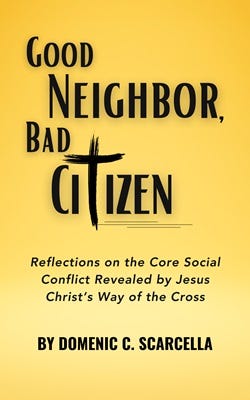My Weakness & How I Disguised It
I Answer the Dreaded ‘Job Interview Question’ & Find the Root Problem
If you enjoy this article, please click Like (❤️) to help others find my work.

It used to be trendy for hiring managers to ask job seekers to admit some of their weaknesses.
Such a query often functioned as a psychological test, trying to gauge the candidate’s self-awareness and emotional intelligence. It gave the interviewee a chance to show some vulnerability and a human side that can get lost in a resume full of technical points about job tasks.
Of course, the temptation for the applicant is to try to play the psychological game right back. Do you actually tell a real deficiency in your skill set or personality? Or do you give something that you think your interviewer wants hear?
Do you phrase it in such a way that makes it sound like a strength that you simply have in too great an amount? For example:
“I’m an overthinker” — Thinking is a good thing, and you simply have an ABUNDANCE of this good thing! Um, no. You’re not an “overthinker.” There’s no overflow of thought coming from you. Your real weakness is more likely that you struggle to evaluate information and are too often indecisive. Perhaps you lack confidence, too.
“I care too much” — Caring is a good thing, and you can’t help but do this good thing SO MUCH! Um, no, again. You don’t “care too much.” Your real weakness is more likely that you struggle with emotional boundaries and attachment issues. You tend to project your own feelings onto others and then get disappointed when others don’t react the way you want/expect.
Ouch, right? Actually identifying weaknesses can really test your (allegedly) thick skin!
Since I’m looking for full-time work, this is on my mind a lot. And I don’t want to be one of those job seekers who can’t or won’t answer the question honestly. I also don’t want to be the kind of person who fails at honest self-reflection.
So, what are my weaknesses — actual deficiencies and phrased as such — that I’m aware of?
What a weak this has been!
I’ve written before about my failures to ever learn a language, and about not being an “idea guy” nor a very visually expressive person (and how I wish I realized these things about myself much sooner than I did!).
But the deficiency I want to focus on today is one that I’ve masked a lot over the years.
I’m bad at “reading” people.
Sure, I can pattern-match people’s behaviors, but doing so requires several “data points” of contact before a rough pattern can be hypothesized. And when I’m with people who do read others well, I’m at a clear disadvantage.
Since I’m also not extroverted, it means that I tend to look for ways to be useful — helpful to the hosts and organizers — at social events.
Wait a minute! That sounds like a good thing! Well, it might be, but it also has its drawbacks, especially as I did it.
See, the reason why I was always so eager to make myself useful in social situations — and it took me way too many years to discover this about myself — is that it gives me much clearer feedback than having to be genuinely social and read people.
I turn to usefulness in order to replace the difficulty of parsing social cues with the relative ease of completing tasks that have clear markers of success or failure.
For me, being useful wasn’t really about honest charity as much as it was a cope to avoid really interacting with people in ways that challenged my comfort levels.
Have I grown any?

Last week, I attended a luncheon after a funeral at my parish for a well-liked former pastor. I was chatting with a friend from church, who spotted a trashcan getting very full. He couldn’t help himself; he had to see if he could help take out the full trashbag, or at least get a new bag to assist the caterer.
He could’ve been genuinely concerned and jumped into action, especially since he works part-time for the parish and is often looked upon for assistance at events. But for a moment, it hit me that I would’ve been the guy secretly looking for ways to make myself useful. I was quietly proud of myself for not trying to escape socializing during the luncheon.
I’m not trying to say that being helpful and useful at events is a bad thing. Being alert and attentive and ready to assist can be good qualities.
Consent-based communities where humans flourish — the type we Christian, anarchist/voluntarist folks are trying to foster — need people who are willing to be useful and helpful.
But such genuine charity comes from pursuing, not avoiding, real social engagement.
I’m still lousy at reading people, but I’ve learned better ways to admit and compensate for it, like asking questions and stating things explicitly, instead of making too many assumptions about people and situations.
Since I’ve also learned how to reduce the effects of neuroticism — a major personality trait we all have to some degree — I don’t feel that having a weakness automatically makes me a failure in the big picture.
I can lack people-reading skills and still engage positively with others.
While my deficiencies are always lurking if I get lazy about keeping them in check, I’ve become a better neighbor by not giving in to my “be useful as a way to avoid people” old habit.
It might be painful at first, but confronting your real weaknesses — and growing beyond them! — is ultimately a good personal endeavor, even if you never get asked about it in a trendy job interview.
Be strong! Leave a Comment!
Got any weaknesses — phrased as real weaknesses! — that you can identify? Are they similar to my deficiencies?
What do you think of my admissions?
If you were interviewing me for a job and I answered the “what are your weaknesses?” question this way, would you hire me? 😅
Let me know your thoughts below …
—
My book, Good Neighbor, Bad Citizen, is available at:
· Amazon (paperback & Kindle)
· Barnes&Noble (paperback)
· Lulu (paperback)
Find me on X: GoodNeighBadCit
And, as always: Be a good neighbor, even if it makes you a bad citizen.






I had to go and read your post on learning languages before I commented. Difficulty in learning another language is a weakness of mine, too; whether Spanish, ASL, or Python. My mother used to quote a teacher of hers, to the effect that learning should be like water to get and a rock to hold, but too often it is a rock to get and water to hold. I recommit to learning Spanish periodically
Introverts unite in doing something helpful to avoid the discomfort of conversing